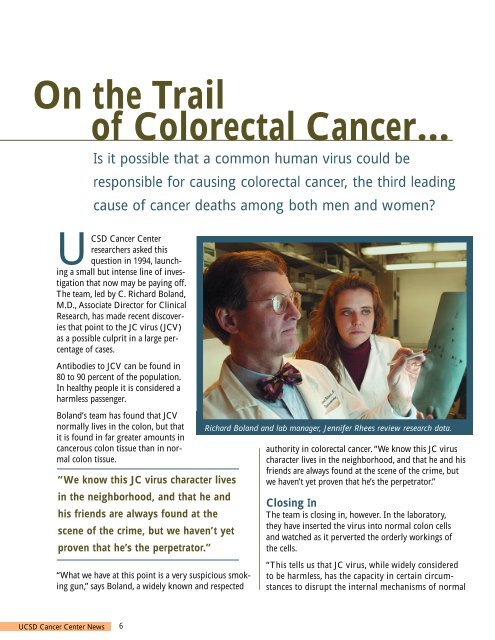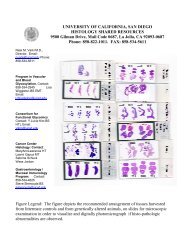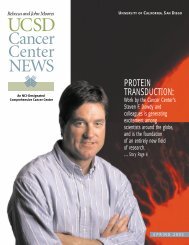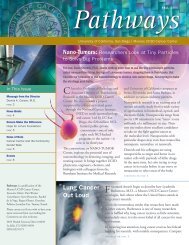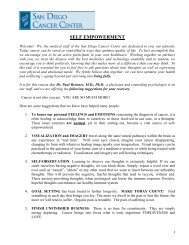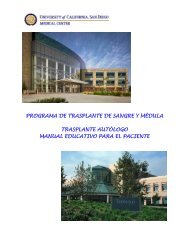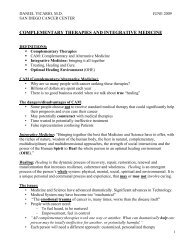FORCANCER - Moores Cancer Center
FORCANCER - Moores Cancer Center
FORCANCER - Moores Cancer Center
Create successful ePaper yourself
Turn your PDF publications into a flip-book with our unique Google optimized e-Paper software.
On the Trail<br />
of Colorectal <strong>Cancer</strong>…<br />
Is it possible that a common human virus could be<br />
responsible for causing colorectal cancer, the third leading<br />
cause of cancer deaths among both men and women?<br />
UCSD <strong>Cancer</strong> <strong>Center</strong><br />
researchers asked this<br />
question in 1994, launching<br />
a small but intense line of investigation<br />
that now may be paying off.<br />
The team, led by C. Richard Boland,<br />
M.D., Associate Director for Clinical<br />
Research, has made recent discoveries<br />
that point to the JC virus (JCV)<br />
as a possible culprit in a large percentage<br />
of cases.<br />
Antibodies to JCV can be found in<br />
80 to 90 percent of the population.<br />
In healthy people it is considered a<br />
harmless passenger.<br />
Boland’s team has found that JCV<br />
normally lives in the colon, but that<br />
it is found in far greater amounts in<br />
cancerous colon tissue than in normal<br />
colon tissue.<br />
“We know this JC virus character lives<br />
in the neighborhood, and that he and<br />
his friends are always found at the<br />
scene of the crime, but we haven’t yet<br />
proven that he’s the perpetrator.”<br />
“What we have at this point is a very suspicious smoking<br />
gun,” says Boland, a widely known and respected<br />
Richard Boland and lab manager, Jennifer Rhees review research data.<br />
authority in colorectal cancer. “We know this JC virus<br />
character lives in the neighborhood, and that he and his<br />
friends are always found at the scene of the crime, but<br />
we haven’t yet proven that he’s the perpetrator.”<br />
Closing In<br />
The team is closing in, however. In the laboratory,<br />
they have inserted the virus into normal colon cells<br />
and watched as it perverted the orderly workings of<br />
the cells.<br />
“This tells us that JC virus, while widely considered<br />
to be harmless, has the capacity in certain circumstances<br />
to disrupt the internal mechanisms of normal<br />
UCSD <strong>Cancer</strong> <strong>Center</strong> News<br />
6


